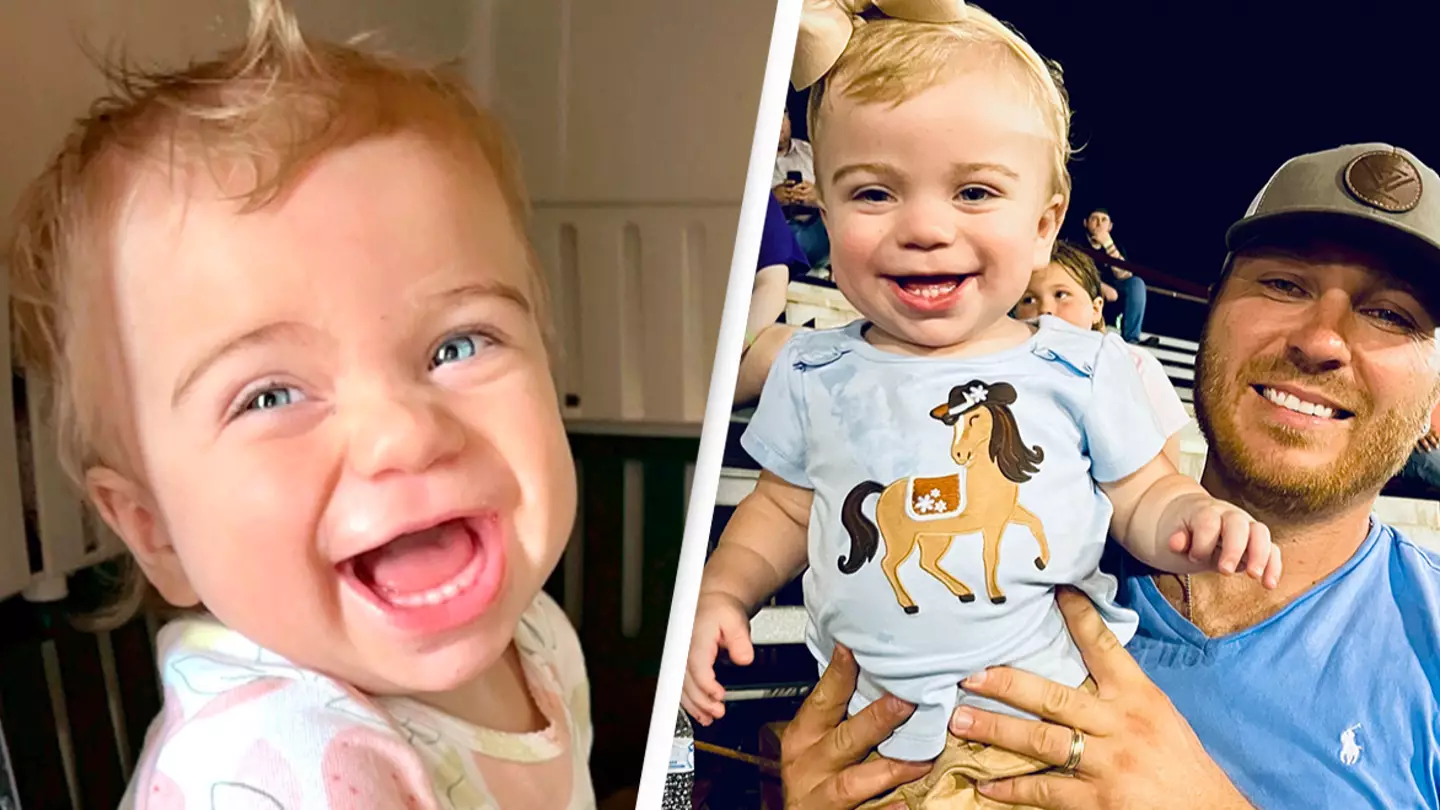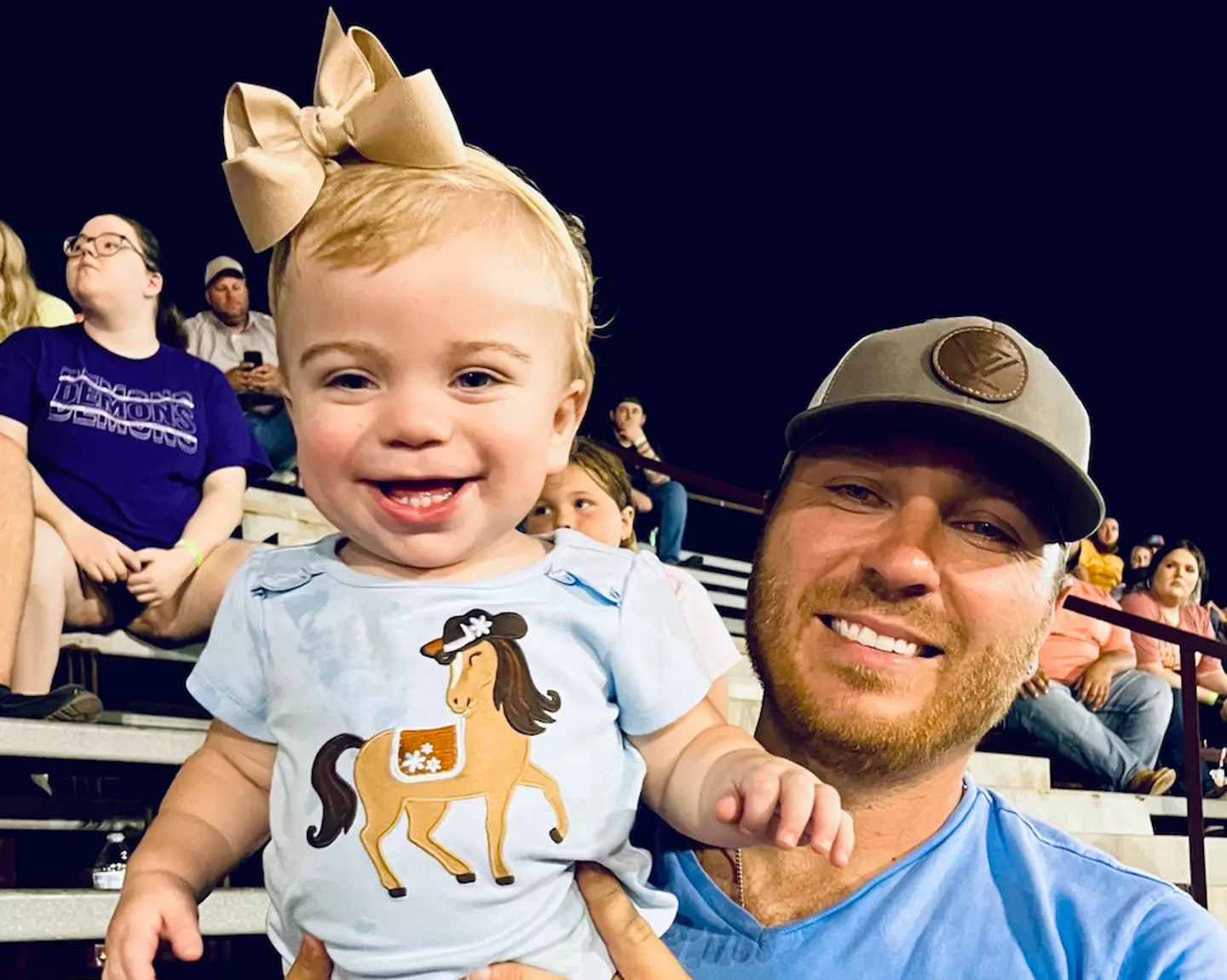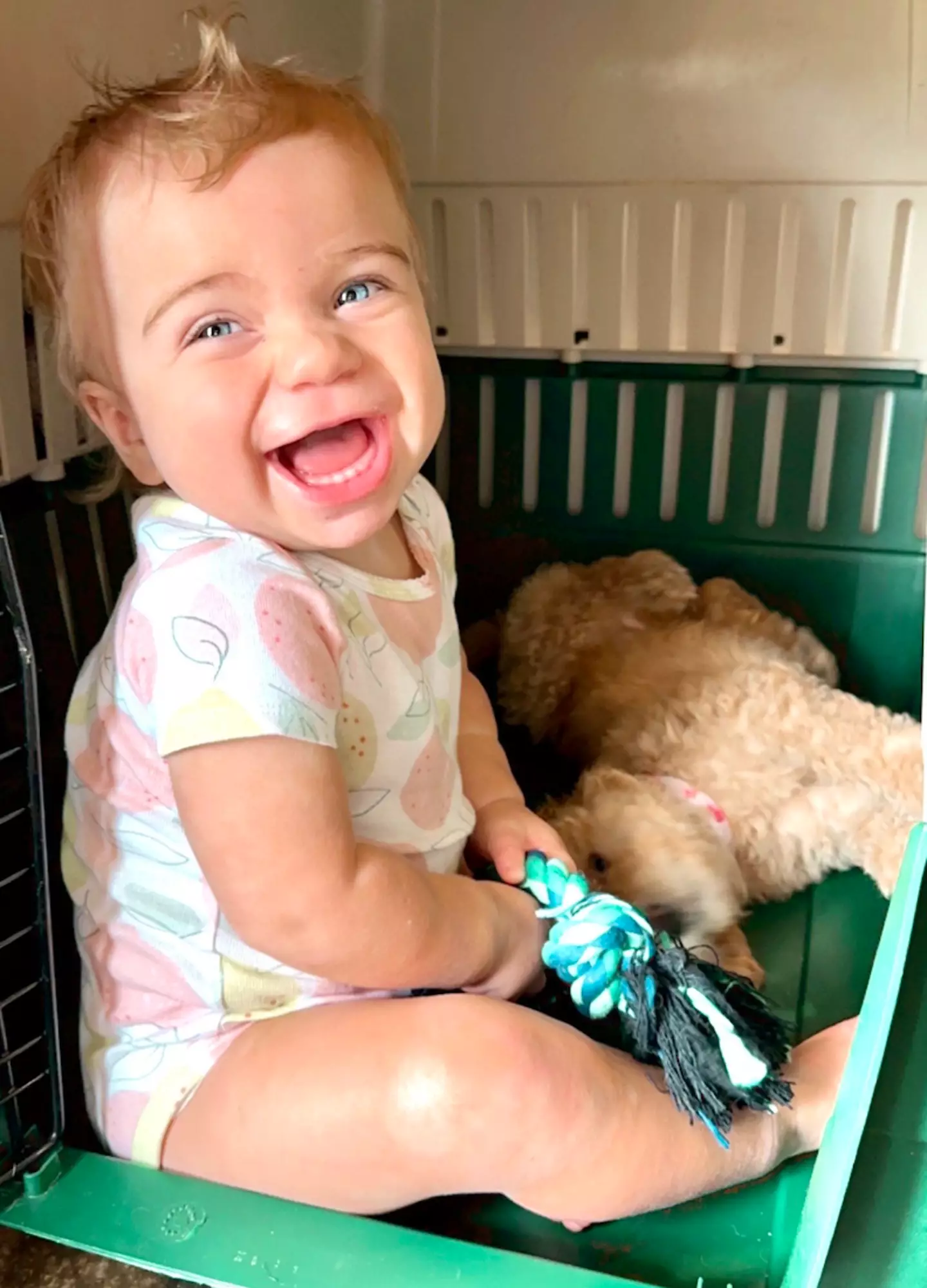A mom has spoken out about learning her baby had childhood Alzheimer's after she found a child with similar symptoms on TikTok.
Morgan Rachal, 29, was delighted to welcome her second child, Lydia, in October 2022.
For the first months of her life, Lydia seemed like a completely healthy little girl who occasionally suffered with the odd health issue like ear infections and sleeping problems.
Morgan, who is a nurse, recalled: "The doctor said the words 'she's perfect' when she was born. She was hitting all her milestones.
"[Her illnesses were] all common things that babies have," she added. "I wasn't looking at anything wrong. I was never worried about anything."
However, it was through her own mom, Cindy, that Morgan learned her daughter actually had a health issue she was unaware of.
Cindy was just scrolling through TikTok when she came across a little girl who looked just like Lydia, who had a rare disorder called Sanfilippo.
Morgan learned of her daughter's condition through TikTok. (SWNS) Sanfilippo syndrome is typically characterized in children by full lips and heavy eyebrows that meet above the nose, or hirsutism, which is excess hair growth.
"My mom came across a TikTok in March called the saving Liv TikTok," Morgan recalled. "They looked like twins. My mom said she looks just like Lydia. I started looking more into the syndrome."
Morgan decided to show the video to her doctor, which prompted them to carry out blood tests and urine tests on Lydia.
A week later, the little girl was then diagnosed with Sanfilippo syndrome B - a rare genetic metabolism disorder also known as childhood Alzheimer's, as it causes children to lose all the skills they have gained.
"It was the worst day ever [when Lydia was diagnosed]. It's very heart breaking," Morgan said.
Lydia currently isn't showing any signs of cognitive decline, but if she doesn't receive treatment she will start to experience the impacts.
Morgan is now hoping to raise awareness of the condition. (SWNS) "They don't start to regress until aged three or four," Morgan explained. "She knows about 20 words. She's the happiest baby."
Sadly, there is currently no cure for the condition, but Morgan is hopeful her daughter will be able to receive help through a trial.
She said: "They call it childhood dementia. She won't be able to walk, or talk. She won't make it through the third decade of life.
"Her joy right now will be taken away if she doesn't get into treatment."
Though Lydia's future now relies on treatment, Morgan is thankful her daughter was diagnosed early.
She's also hoping to now raise awareness of the symptoms so other children can be diagnosed early, as well as helping research and trials looking into a cure.

 Emily Brown
Emily Brown
